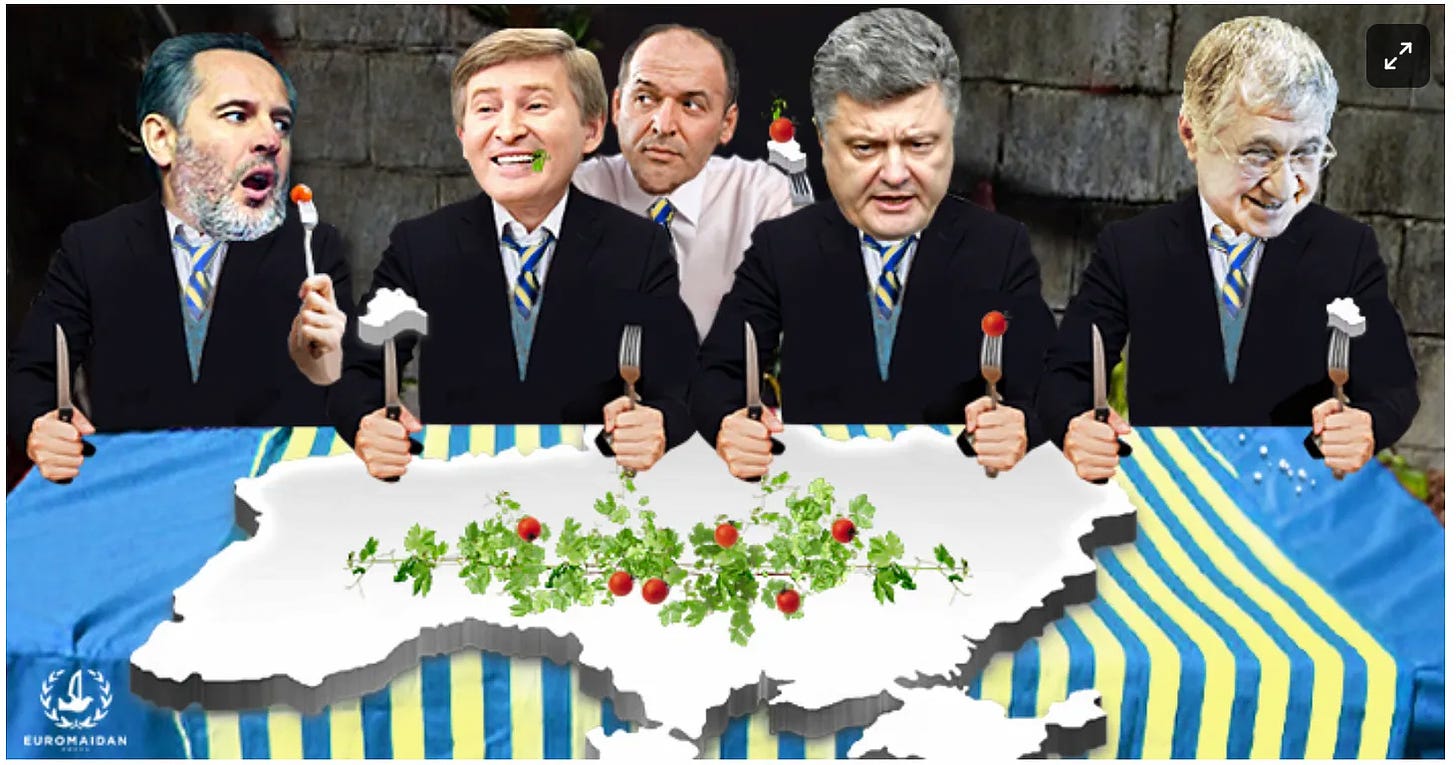For many years I lived in Vienna, Austria, and became fascinated by what a Foreign Policy magazine reporter called the “Great Pipeline Opera”—that is, the competing projects for supplying natural gas to Europe. I ended up writing a detective novel, set in Vienna to the backdrop of the “Pipeline Opera,” but it didn’t pass muster with my literary agent. Among the book’s other defects was, he thought, the fact that most Americans were unfamiliar with Ukraine and its people and thus wouldn’t feel a connection with the story.
In researching the book, I became fascinated with Ukraine’s oligarchs—extremely vivid, colorful, aggressive, and entertaining characters. For years these guys have found themselves straddling the fence between Moscow (540 miles away) and Washington (5,000 miles away). On the one hand, they did very well for themselves with the denationalization of Soviet assets after 1991. On the other hand, the West seemed more attractive and to offer even greater opportunities.
The Kennedy Beacon just published my long essay on Ukraine’s oligarchs in which I recount their changing fortunes over the years, their relationship with Russia, with each other, and their friends in Washington, especially the Clintons and Bidens.
Like me, Robert F. Kennedy, Jr. is extremely suspicious of the U.S. neocon-dominated Military-industrial complex. Like me, he believes that the United States government should immediately call for a ceasefire and a negotiated settlement to end the war. Until World War II and its insane “total war/total annihilation” mentality, it was the convention of warring European powers to seek a negotiated settlement.
I suspect most of Ukraine’s oligarchs would agree (at least privately) with our view of the situation. Many of them have left Ukraine and retreated to their villas in the South of France and other homes abroad. They, who own most of the country’s assets, are not fighting “till the last cartridge” is fired, so why should the poor boys of Ukraine be expected to do so?
Americans who fervently reject out of hand a negotiated settlement should consider the courageous example of Kennedy’s 28-year-old son Conor, who traveled to Ukraine, got some basic training, and served as a heavy machine-gunner for two months. I write this with the utmost sincerity. Why not? It could be the adventure of a lifetime, and it could afford one the opportunity to die for a noble cause.
Please check out my essay on the Kennedy Beacon. If you find it interesting, please share the link with your networks.






Thanks to everyone for reading, and thanks for your replies. RFK, Jr. was not aware that his son had travelled to Ukraine until after the fact. He did not endorse his son's decision to do this. However, he accepted his son's decision to place himself in harm's way to back up his convictions. Best regards, John Leake
It is not brave to volunteer to be a machine gunner anywhere. I volunteered to be a Marine and go to Vietnam. Not brave but ignorant. There is nothing brave in killing people. It is ugly and we need not put a shine on it.
But great article. Thank you.